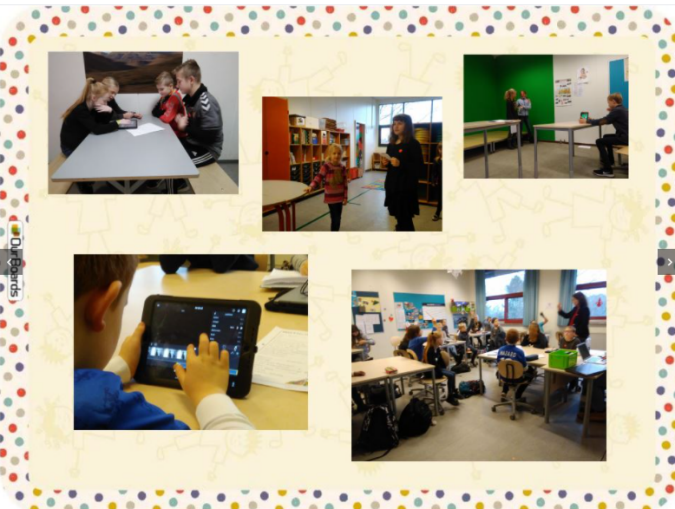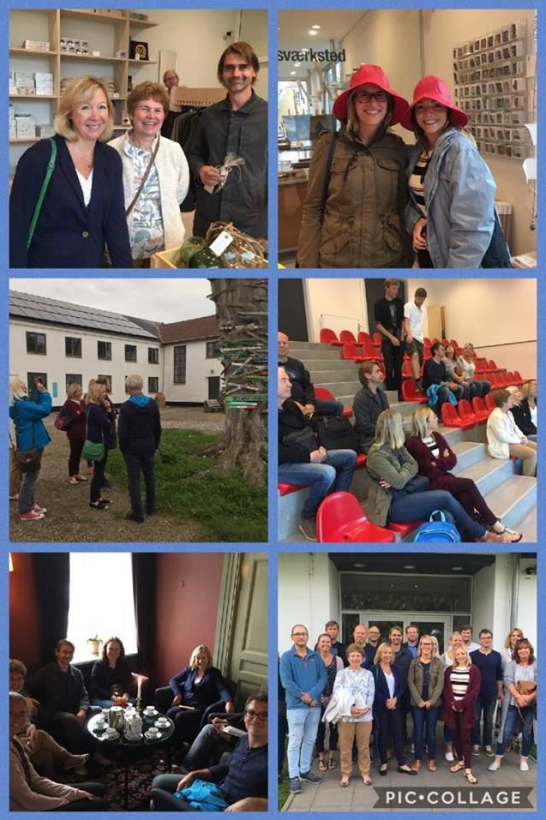Topic(s) addressed
The project ‘Digital Learning Across Boundaries’ (DLAB) addressed the need to align European educational practices with the ways that digital technology is changing our approach to learning, and learning content, as well as the ways in which these considerations are being applied to the field of education. The project’s aim was to promote digital learning that traverses the boundaries of physical space, curriculum, and languages and cultures, in the interest of facilitating collaborative learning across national boundaries. The partnership also aimed to develop a Digital Leader programme for teachers and educational institutions; increase the digital competences of participants across the project’s themes; develop materials for the eTwinning project through cross-national teams; increase connectedness via face-to-face events (based on the concept of Digital Playdates); link educational institutions, cultural institutions, and SMEs; and, develop a MOOC for each of the project’s three thematic areas by extending the scope of the project’s materials.
Target groups
The project’s target groups consisted of lecturers in Higher Education Initial Teacher Training programmes, trainee primary education teachers, in-service primary teachers, and primary-aged students from across 4 European countries, with the aim of demonstrating to them the ways in which the innovative use of technology can rapidly influence curricula at a number of levels. External target groups consisted of individuals with an interest in the project’s themes – particularly those involved in education. A number of intellectual outputs were delivered over the course of the project’s 3-year duration, including journal articles, 3 MOOCs, eTwinning project kits, a seminar in Brussels for TTIs, an eTwinning webinar hosted by the Central Support Service (operated by European Schoolnet), and various conference presentations and courses in each partner country such as #Lærerlink (Denmark), and international presentations at the annual eTwinning conference.
Methodologies
Each of the project’s programme year began with a 5-day training event (in the form of a Digital Playdate) that facilitated the development of the project’s annual theme and sub-themes. Cross-national subgroups had the liberty of deciding on a methodology and lesson plans based on their selected subtheme, after which they were given a 2-month period to develop and test their ideas, followed by the sharing of their projects on the eTwinning platform after a further 2-month period. At the end of this process, all groups reconvened for a 5-day period during which they refined their methodologies and ideas in preparation for a MOOC, and the launch of the eTwinning project kits. Each partner country hosted a Digital Playdate as a CPD event for local teachers, which was held at a cultural institution and supported by an SME. The project’s outcome included MOOCs on the themes of Technology Outdoors, Stem to SteAm, and Technology Enabled CLIL – each of which consisted of a reusable and re-mixable set of content materials and an ongoing online community of practice. A number of other significant outputs were also produced such as interdisciplinary eTwinning kits on the project’s themes that were uploaded onto the eTwinning platform; a series of international and local teacher CPD events in the form of Digital Playdates and one Super Playdate; a Technology Outdoors set of eTwinning project kits designed to support learners from disadvantaged backgrounds so they may handle change in a positive manner during transitions; a set of Technology Enabled CLIL resources and eTwinning project kits designed to support learners from disadvantaged backgrounds with additional language needs; a set of Stem to SteAm resources and eTwinning project kits aimed at promoting interdisciplinary learning; a Digital Leaders Programme promoting technology use and eTwinning at schools; and, a series of papers and journal articles based on data derived from the project’s themes. Some of the project’s long-term benefits were to facilitate sustainability through the design of project activities that enrich the capability and curricula of partner HEIs; promote international collaborative work through the development of cross-sectoral communities of practice; and, actively encourage cooperation among cultural institutions and SMEs.
Environments
The project engaged the blended learning approach, where multiple partners worked simultaneously across various countries and schools, with interdependency among groups from these countries cemented via virtual communication. Various didactic themes such as STEM and sustainability were addressed through the use of digital tools and creative solutions, with project holders having engaged the design-thinking approach in their internal collaborations as well as in their projects and MOOCs. Allowing participants to interact with international partners during MOOCs facilitated the further expansion of innovative projects, and added a valuable international dimension to participants’ understanding of the themes being considered, and their personal development of intercultural competencies.
Teachers
With approximately 700 registered participants, the project’s MOOCs managed to reach a global audience. The MOOCs, which are interactive by design, have seen the involvement of all project participants (lecturers, teachers, and student teachers) in interactions with MOOC participants, with said participants having shared their personal views and knowledge towards further developing projects designed by DLAB – adding another innovative touch to the project. Each country had involved a number of different stakeholders over the project’s 3-year duration, with stakeholders having actively participated in the development of project ideas during learning, teaching, and training events. Additionally, for some stakeholders, involvement in the DLAB project also served as a stepping-stone towards developing valuable ideas for their organisations.
Impact
Three themes on ‘learning across boundaries’ were developed by the project’s coordinators over its 3-year duration. The first was Technology Outdoors, which aimed to bridge formal and informal learning by extending the learning process beyond traditional classroom spaces, and to support learners from disadvantaged backgrounds through collaborative outdoor learning experiences as they manage transitions. The second was Stem to SteAm, which incorporated the Arts into the integrated study of Science, Technology, Engineering, and Maths in the interest of creating inter-disciplinary challenge-based online learning resources. Lastly was the Technology Enabled CLIL, which engaged the curriculum in the teaching of language competencies and cultural sensitivity towards meeting the language needs of diverse learners, including learners for whom English is an additional language (EAL/EFL). The aim was to approach all three themes in an aspirational manner by involving local cultural institutions and small and medium enterprises (SMEs), so as to develop a strategic partnership consisting of teacher educators, teachers, trainee teachers, school students, and representatives from cultural institutions and SMEs in exploring how teacher education may accelerate innovation. Secondly, the undertaking was meant to promote digital learning beyond boundaries across physical spaces, traditional curriculum subjects, and languages and cultures, so as to impact teaching and learning practices across schools and university sectors.
- Reference
- 2016-1-DK01-KA201-022332
- Project locations
- Denmark
- Project category
- Primary education
- Project year
- 2021
Stakeholders
Participants
GO! middenschool Brugge-centrum
- Address
- Belgium
Hogeschool West-Vlaanderen Howest
- Address
- Belgium
Hogskolen I Ostfold
- Address
- Norway
Klarup Skole
- Address
- Denmark
Northampton International Academy
- Address
- United Kingdom
Råde kommune
- Address
- Norway
Seminarieskolen
- Address
- Denmark
Skoletjenesten på Sjælland
- Address
- Denmark
Standens Barn Primary School
- Address
- United Kingdom
The University of Northampton Higher Education Corporation
- Address
- United Kingdom


